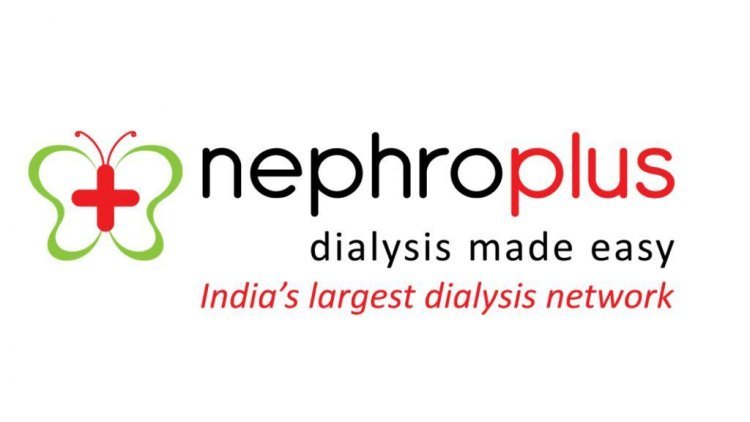NephroPlus hosts conference – Top clinical experts discuss the vexing issue of Hepatitis C infection in Haemodialysis patients on 'World Hepatitis Day' and solutions across practice settings

~HCV Seroprevalance in those on Maintenance Hemodialysis is 20%~
~Indian patients on hemodialysis are increasing at 25 % per year~
~Majority of the burden (88%) is hidden in the low-risk population who are not screened for HCV~
Hyderabad, 27th July 2022 - To mark this year's World Hepatitis Day, NephroPlus, India's largest dialysis network, hosted a webinar in collaboration with leading Nephrologists, Researchers, Hepatologists, and Clinicians on Tuesday 26th July 2022. The experts on the panel discussed risk factors identified for high incidence of HCV infection in HD (Haemodialysis) patients; the most important ones are the number of blood transfusions, duration of the hemodialysis treatment, and nosocomial transmissions due to inadequate infection-control measures.
The global prevalence of hepatitis C is estimated to be 3%, with 12.5 million people in India alone infected with the virus. It is also important to note that Hepatitis C is the most common hepatotropic viral infection that affects patients on maintenance hemodialysis. Furthermore, HCV infection in HD patients has been associated with high morbidity and mortality.
This knowledge-sharing session also brought together the country's most reputed clinicians to talk about Hepatitis, its impact on dialysis patients, dialysis centres, and potential solutions. NephroPlus emphasized the importance of managing Hepatitis through a multidisciplinary approach for hemodialysis patients through this exclusive virtual event during the sessions. The subject matter experts shared their experience in real patient care settings and, coupled with insights from their academic and research work, emphasized the need for strict implementation of and adherence to infection control practices during Dialysis to prevent transmission of blood-borne pathogens such as HCV in hemodialysis patients.
In his talk, Dr. Vivekananda Jha, Executive Director, George Institute for Global Health India, and a Professor of Nephrology at the University of Oxford, described the correlation between Hepatitis C and kidney diseases. "Hepatitis plays a vital role in patient's lives with kidney diseases. We all know kidney disease by itself is complex. Serious health conditions such as kidney diseases make patients more vulnerable to liver infections, including Hepatitis C and other liver infections. However, Hepatitis is a condition that can be treated by proper medication. Medical science has made immense progress, and we are in a fortunate position to be able to either prevent or treat hepatitis C. For hepatitis B, we have vaccines available. All chronic kidney patients should be vaccinated against HBV,"
Echoing his thoughts, eminent Nephrologist Dr. Sanjay Agarwal, Professor and Head of Nephrology at All India Institute of Medical Sciences (AIIMS), commented, "The HCV infection can be diagnosed by detecting anti-HCV antibodies in the patient. Various factors that affect the magnitude of HCV infection include the geographic distribution of population, duration of Dialysis for a patient, a pool of HCV patients in a dialysis unit/clinic, practice patterns, number of blood transfusions inpatient, co-infection with other viruses, and tests employed for diagnosis. It is to be noted that the longer the duration of Dialysis for a patient, the higher the risk of HCV infection."
One study by Dr. Sanjay Agarwal and two other authors revealed that a "marked increase of HCV infection among patients undergoing hemodialysis (HD) was likely to be due to nosocomial spread, indicating that patients who spent long periods on hemodialysis were more likely to develop HCV Infection.
While discussing the clinical features of HCV infection, Dr. Agarwal further highlighted that “the Majority of HCV patients are asymptomatic, and transmission is less where isolation is practiced. Therefore, HCV infection has become the most prevalent hepatotoxic viral infection in Maintenance Haemodialysis (MHD) patients. In India, HCV prevalence in hemodialysis ranges from 4.3 to 45%, while the global average is 6 to 60%, making it an alarming health crisis in the renal space. Furthermore, the situation needs to be addressed because hemodialysis patients with HCV have a higher mortality risk than HCV-negative patients."
According to the experts, treatment HCV is now highly safe and effective, made possible with orally administered drugs called DAA (Direct Acting Anti-Viral Drugs) with a 90-95% cure rate after 3-6 mths of treatment, available at a fairly low price in India. The National Viral Hepatitis Control Program (NVHCP) launched on 28th July 2018 by the Govt. of India has also achieved some remarkable goals that include 1.3 lacs of cured patients and 2-3 lacs of population has been undergoing treatment .
The discussion also called for regular counselling to help patients understand the situation's complexity and the need to act fast. In addition, the experts present noted that it is important that the patients maintain a positive mental attitude and adhere to regular testing and follow-up.
Adding further to the session, Dr. Suresh Sankar, Senior Vice President, Clinical Affairs at NephroPlus, commented, "The webinar provided an opportunity for experts to discuss the very worrisome findings and chart a way forward. We always want to be at the forefront of conversations that seek the betterment of dialysis care in India and beyond. NephroPlus has seen a decline in the prevalence of Hepatitis C in its network. There has been a 65% decrease in prevalence over 10 years. However, the increase in the absolute number of patients on Dialysis is growing, especially in smaller towns, and comes with unique challenges. We at NephroPlus recognize Hepatitis C infection as a significant health impact factor and have a diligent screening, prevention, and surveillance policy for BBV infection to improve patient safety by special infection control measures. In addition, we have stratified centres by prevalence % (centres > 10% of patients are recognized as high-risk centres per KDIGO 2018)—initiatives in such centre to mitigate risks of Hep C transmission. We are committed to the cause of preventing Hep C in Dialysis patients. We are happy to support other dialysis centres to set up a Hep C surveillance, prevention, and treatment program."
The webinar, conducted to mark World Hepatitis Day, was co-chaired by Prof. Vivekanand Jha, Executive Director at The George Institute for Global Health, and Dr. Sanjeev Saxena, Chairman & Senior Consultant PSRI, New Delhi. Eminent Speakers - Dr. Sanjay Agarwal, Prof. & Head Nephrology at AIIMS, Dr. Amit Goel, Additional Professor, Department of Gastroenterology, Sanjay Gandhi Postgraduate Institute of Medical Sciences, and the panel discussion constituted - Dr. Anupama Y. J, Head of Department of Nephrology Nanjappa Hospital, Shimoga, Dr. Manisha Sahay, Nephrologist and Head of Department of Nephrology Osmania Medical College, Hyderabad, Dr. Neeru Aggarwal, Clinician, Max Super Speciality Hospital, Vaishali, Ghaziabad, and Dr. Chandan Chaudhari, Consultant Nephrologist, Wockhardt Hospitals, South Mumbai


















